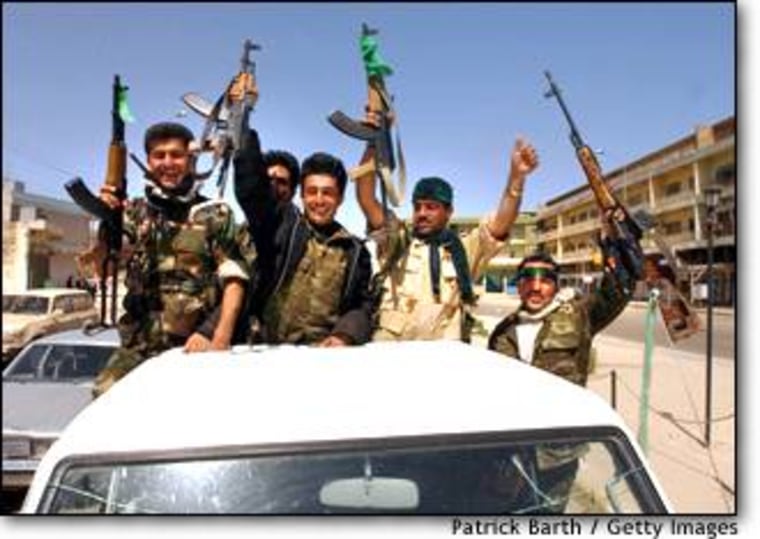The TV images from the northern Iraqi city of Kirkuk have been playing continuously in Turkey. There are scenes of crowds dancing in the streets, interspersed with crowds tearing down Saddam Hussein statues and portraits — scenes that have raised red flags all over Turkey.
In a lounge at the Hilton Hotel in Adana, one young Turkish woman watching the coverage shook her head and muttered disdainfully, “Those Kurds.”
The concern here is that “those Kurds” will take over the oilfields surrounding the northern Iraqi cities of Kirkuk and Mosul and use the wealth to launch their own breakaway state of Kurdistan — a state that might try to lay claim to a chunk of eastern Turkey populated largely by Turkish Kurds. Turks have vivid memories of the Kurdish rebellion on Turkish soil from 1982 to 1995 that took 15,000 lives.
Nobody wants to see that conflict rekindled by the fall of Saddam Hussein in Iraq.
The anxiety persists in spite of promises by the two main Kurdish resistance groups and by the United States that Turkey need not worry about the Kurds’ intentions — that a renewed push for an independent Kurdish state is simply not in the cards. But the way events unfolded in Kirkuk raised Turkish suspicions.
When the Iraqi forces in Kirkuk melted away and the Kurdish peshmerga fighters swept into town, it wasn’t exactly according to the script that called for U.S. armor to lead the charge. American Abrams tanks and Bradley fighting vehicles were nowhere near the city as it fell.
The Pentagon tried to put a different spin on events — that the Kurds, acting on U.S. orders, saw the Iraqis departing and simply responded to an “important opportunity,” in the words of Maj.-Gen. Stanley McChrystal, a Pentagon spokesman.
The Turks have repeatedly threatened to send their own troops to intervene in northern Iraq if the Kurds took Kirkuk. Thousands of Turkish troops remain arrayed along the border with northern Iraq and the thought of the Turks launching a “war within the war” horrifies Washington. That’s why U.S. Secretary of State Colin Powell called Turkish Foreign Minister Abdullah Gul to reassure him that the Americans were in charge in Kirkuk.
Gul, trying to quiet fears, later told reporters that Powell had invited the Turks to send military observers to monitor the situation in Kirkuk and watch the Kurdish fighters withdraw eventually. Washington’s reasoning: Better a few observers than thousands of Turkish combat troops armed with tanks and heavy artillery.
In Silopi, on the Turkish side of the border, truck driver Nechmetin Belet, a Turkish Kurd with relatives fighting on the other side, told NBC News that there’s no need for the Turks to worry about the Kurds rebelling anew. “All we want is peace,” he said, adding the hope that the fighting will be over soon and that the border will reopen. “That will be good for the Kurds,” he said, “and good for business.”
Belet, who has a wife and four children ages 1 to 13, hasn’t had a steady job in two years. That’s because trade between Iraq and Turkey has been shut down by U.N. sanctions and by the threat of cross-border terrorism. He looks forward to a resumption of trade, which will give him the opportunity to get back behind the wheel of his truck.
But as the war continues in northern Iraq, many people in Turkey still wonder who’s really steering the actions of the Kurdish forces as they celebrate the fall of Kirkuk.
(NBC’s George Lewis is on assignment in Turkey.)
